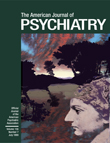Possible Nefazodone Withdrawal Syndrome
Mr. A was a 28-year-old white man who enrolled as a healthy volunteer in a study protocol conducted at our institution. Written informed consent was obtained from Mr. A after the study procedures were explained. The protocol required that subjects receive 9 days of nefazodone therapy. The dose was titrated over the course of 4 days to 200 mg twice daily. It was maintained for 5 days and then abruptly discontinued.Mr. A complained of dizziness and “electrical sensations down [his] legs” beginning approximately 36 hours after his final nefazodone dose. The electrical sensations lasted throughout the night and were described as “tickling electrical sensation[s]” severe enough to interfere with sleep. The discomfort would subside upon movement but return after approximately 30 seconds of immobility. By the following morning (48 hours after nefazodone discontinuation), the leg symptoms had subsided. Dizziness, however, persisted throughout the day and at times led to nausea. Seventy-two hours after discontinuation, his dizziness had begun to subside and was completely gone shortly thereafter.Although single doses of dextromethorphan and methylprednisolone were administered as study medications, they were unlikely to cause these symptoms. Mr. A reported that he had never experienced similar symptoms.
References
Information & Authors
Information
Published In
History
Authors
Metrics & Citations
Metrics
Citations
Export Citations
If you have the appropriate software installed, you can download article citation data to the citation manager of your choice. Simply select your manager software from the list below and click Download.
For more information or tips please see 'Downloading to a citation manager' in the Help menu.
There are no citations for this item
View Options
View options
PDF/ePub
View PDF/ePubGet Access
Login options
Already a subscriber? Access your subscription through your login credentials or your institution for full access to this article.
Personal login Institutional Login Open Athens loginNot a subscriber?
PsychiatryOnline subscription options offer access to the DSM-5-TR® library, books, journals, CME, and patient resources. This all-in-one virtual library provides psychiatrists and mental health professionals with key resources for diagnosis, treatment, research, and professional development.
Need more help? PsychiatryOnline Customer Service may be reached by emailing [email protected] or by calling 800-368-5777 (in the U.S.) or 703-907-7322 (outside the U.S.).

